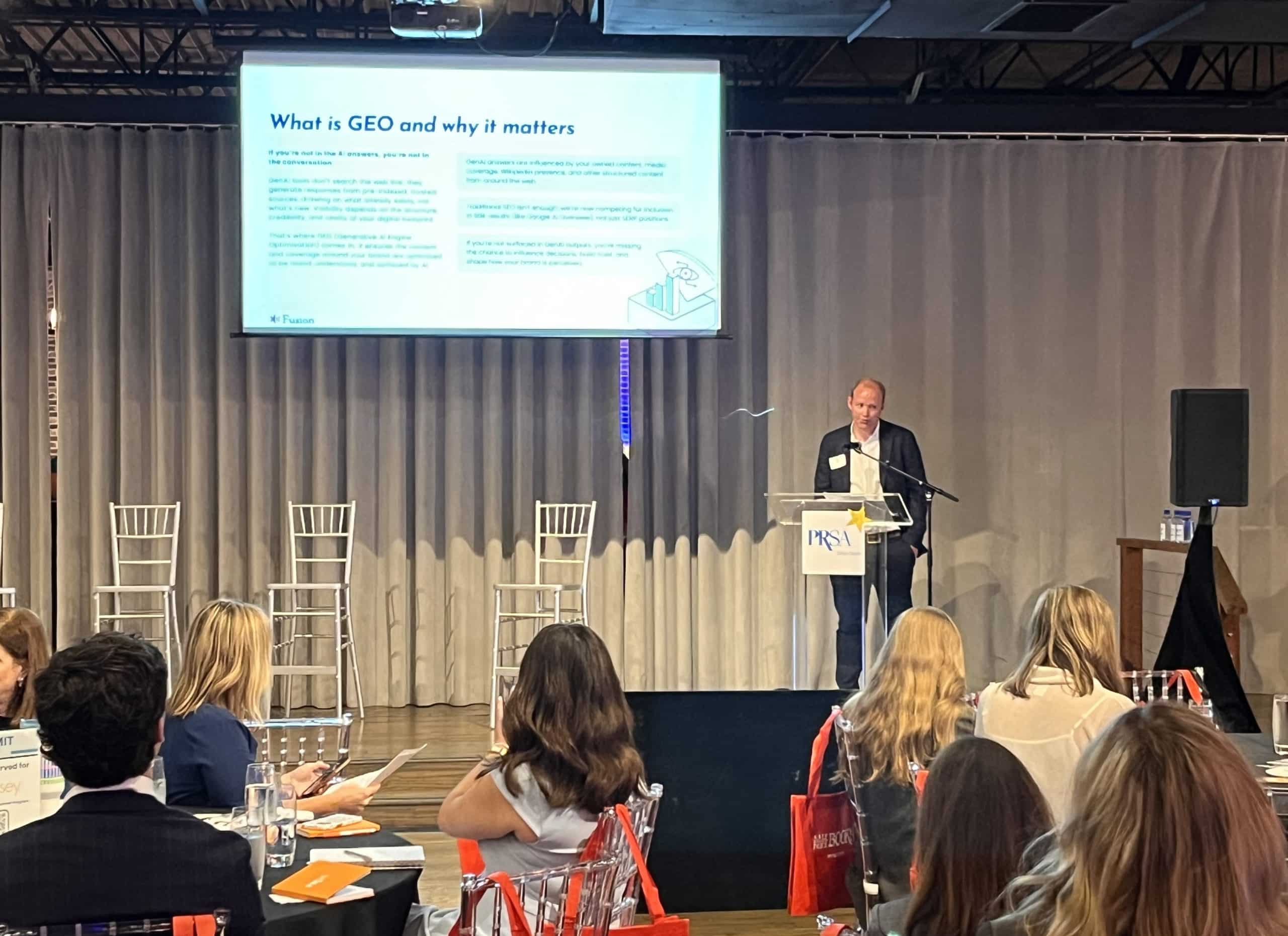
It was a pleasure to address the PRSA Dallas UnSummit 2025 earlier this month, joining communications, marketing and PR professionals from across the country for a day of fresh perspectives, dynamic dialogue and practical insight. The event offered a great to platform to explore one of the fastest emerging areas of the communications sector, the rise of Generation Engine Optimisation (GEO).
Here I wanted to revisit the tropic and offer a brief perspective on how Generative AI (Gen AI) is changing search and what that means for our profession. Spoiler: we actually think this the best thing to happen to communications for a long time.
How Generative AI search works
Gen AI replaces the list of ten websites offered by Google with immediate answers that require zero clicks. No browsing, just the information you want.
Last year there were roughly one trillion page views each day. This year the figure is down to 750 billion – a 25 per cent drop in 12 months. That’s a problem. It’s a problem for publishers who are facing a collapse in ad revenue, but it’s also a problem for brands who are seeing less traffic, less engagement with their content and ultimately a drop in leads.
It’s this problem we’re helping clients solve with our GEO service.

What does all this mean for comms?
For brands seeking web traffic, the game has fundamentally changed. Whereas once the task was to curate owned content for Search Engine Optimisation (SEO) and to secure the maximum number of backlinks. It was quite a technical activity.
Now, the job is for a brand to provide—and appear in—the content that forms part of Generation AI’s answer. In this new world, quality of knowledge and understanding trumps everything, because that’s what the AI engines want. While owned content still plays a role, a broader range of sources dictate whether a brand appears in an AI answer – so PR, analyst relations, Wikipedia pages and Reddit threads, Quora Answers are more relevant than ever for visibility.
That’s why we view this change as positive for communicators. It’s the people in this room that have the editorial skills to ensure the content provided by their company is genuinely informative and useful, and the relationships to ensure it features in the right places.
When it comes to media relations the game is changing too. Whereas once a profile in the Dallas Morning News or Fox News was the goal, today that may not be what achieves maximum eyeballs. Gen AI offers a much bigger window to the world than even the biggest publisher ever can.
The AI engines prioritise quality content, which might be drawn from a national outlet, but increasingly we see it’s being pulled from specialist trades or blogs with deeper reporting and more informative output.
It’s these changes we’re helping clients navigate via our GEO service.
It’s about bringing strategy, search and storytelling together to increase relevance and combat declines in web traffic. But I suppose my key message is: the fundamentals of our discipline haven’t changed – in fact the quality of the story and placing it intelligently matter more than ever.
More Information
UnSummit is a signature PRSA Dallas event, offering exploration of the ever-evolving landscape of public relations and marketing communications through short talks, dynamic speakers, and focused networking opportunities.
Find out more about the Fire on the Hill Generative Engine Optimisation service here.